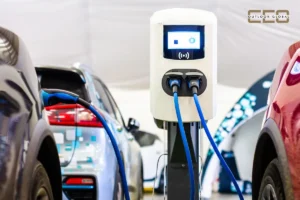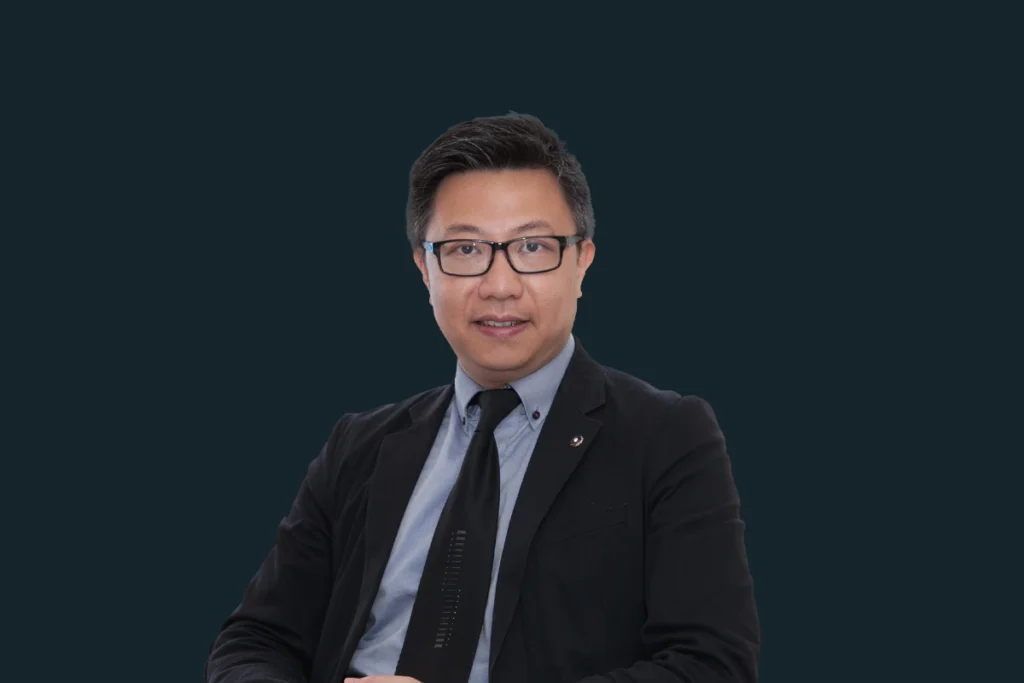

Making Care Smarter, Softer, and More Human
CEO
Prohab Group


Making Care Smarter, Softer, and More Human
CEO
Prohab Group
As populations age and healthcare demands grow more complex, leaders across Asia are being called to rethink how care is delivered—not just in hospitals and clinics, but in homes, communities, and everyday lives. In Hong Kong, where people live longer but not necessarily healthier, the conversation is shifting. It’s no longer just about treating illness—it’s about preparing for life, proactively, and with dignity.
Dr. Thomas Chiu, the CEO of Prohab Group, is leading that shift with clarity and conviction. His work goes beyond traditional healthcare. At Prohab, he is building a model that blends medical care, rehabilitation, retail access, and smart technology—focused on helping people stay well, not just get well. The goal? To support individuals in managing their physical and mental health through every stage of aging.
What sets Dr. Thomas apart isn’t just his current title—it’s the depth of his journey. He began his career as a physical therapist, then spent over a decade driving innovation in industrial and healthcare technologies at Honeywell, before returning to the healthcare space with a broader perspective. His path has always followed one simple question: How can we improve lives by connecting what people truly need with what systems can deliver?
“Healthcare should never be about reacting to problems—it should be about anticipating life’s changes and meeting people there, with care that feels personal and prepared.” — Dr. Thomas Chiu
Today, that belief continues to guide his leadership at Prohab Group, where care meets strategy, and innovation is always tied to impact.
CEO Outlook Global sat down with Dr. Thomas Chiu to explore the challenges he faces, the lessons he’s carried forward, and the future he’s working to build—one solution, one partnership, and one person at a time.
My journey started nearly 30 years ago as a physical therapist in hospitals and clinics. Working closely with patients taught me something I’ve carried ever since: “Real impact comes when you blend compassion with innovation.”
Over time, I moved into the corporate world—first at a Hong Kong-based industrial conglomerate, then Honeywell—where I led sensor-based industrial and healthcare projects across Asia Pacific. I pursued degrees in law and engineering to better manage cross-disciplinary work, and those 15 years shaped my understanding of diverse markets and leadership.
Eventually, I returned to healthcare, completed an EMBA, and launched my own company focused on rehab services, Chinese medicine, and integrated health solutions across Hong Kong and China. The pandemic reminded me why I started in care—and why I chose to come full circle.
Operating in Hong Kong’s fast-paced business landscape has taught me that stability is no longer the default—it’s the exception. The pace of change across healthcare, retail, and technology is relentless, and that’s exactly what makes leadership here both exciting and demanding.
Instead of relying on long-term certainty, I lead with agility. You can’t afford to over-plan when tomorrow might demand a new strategy—so I choose to act fast, and if possible, act first. That mindset has helped me guide my teams through ambiguity, stay competitive, and build resilience into the core of everything we do.
At Honeywell, I saw AI reshape everything from automotive to safety tech—but healthcare is where it feels most personal. The real challenge isn’t tech—it’s people. We simply don’t have enough doctors or caregivers.
That’s why I believe AI in healthcare isn’t here to replace human touch—it’s here to extend it. From robots assisting in elderly homes to AI handling diagnostics and daily care, we’re moving toward a model where tech fills the gaps, making care more accessible, efficient, and humane.
It hit me during the first week of lockdown—everything just stopped. In Hong Kong, where space is tight and life moves fast, that kind of standstill was unheard of. Our clinic went quiet, but our team still had rent to pay and families to support. We couldn’t wait.
So we pivoted fast—turned our clinic into an online academy with 16 certified programs and job guarantees. We had great response and our therapists became teachers and we successfully created new income for the company while many people were still busy complaining about the lock up. That moment shaped everything.
I used to think being a healthcare professional was all about treating patients—but working at Honeywell flipped that script. It taught me that impact happens when you connect care with creativity and strategy.
Those years opened my eyes to product design, unmet market needs, and the power of structured thinking. I took those lessons—along with my own experiences—and built a healthcare model that’s not just reactive, but truly responsive to today’s evolving demands.
If you’ve watched the Avengers, you’ll get how I see Prohab Group. Each domain—healthcare, retail, technology—they’re like individual superheroes. Strong on their own, but truly powerful when they work together.
We’re growing our retail presence across Hong Kong to stay close to the community. My PhD research focuses on integrating tech into elderly care, which led us to develop AI-powered robots that can interact with seniors 24/7—cost-effective, scalable, and genuinely life-enhancing.
Retail brings people into our ecosystem, and technology helps us understand and serve them better. But the real backbone? Partnerships. “You can’t build meaningful change alone—it’s the blend of people, processes, and purpose that makes innovation work. That’s been our north star at every step.”
Some days, I feel like I’m wearing five hats before lunch—and honestly, that’s just the new normal. The CEO role isn’t confined to strategy anymore. With tech simplifying so much and traditional roles getting merged, I find myself dipping into what used to be CFO, CTO, and CHRO territory—sometimes all in the same meeting.
It’s not about doing everything yourself, but about being efficient, tech-aware, and making smart calls on what to automate or outsource. Even a small bump in responsibility without a huge pay hike can set the right tone—it shows the team that leadership isn’t above rolling up their sleeves. I’ve realised efficiency is one of the few places where you can actually gain more without spending more. That mindset, I think, is what defines the modern CEO.
I’ve always said—build people before you build the business. That’s been my core belief from day one. I’ve invested a lot of time in training my team, not just for today’s work but to create something sustainable that can grow into second-tier cities and beyond.
There were times I chose not to chase flashy event partnerships. Some colleagues questioned it, but I saw them more as branding plays, not revenue drivers. It wasn’t the popular choice—but that long-term perspective has served us well.
I’ve never believed in staying in just one lane. I lead in healthcare, but I read up on engineering, politics, even investment trends—because the world is too interconnected to operate in silos. The more you know beyond your field, the better you lead.
Never miss any important news. Subscribe to our newsletter.
Copyright 2025 CEO Outlook Global. All rights reserved.